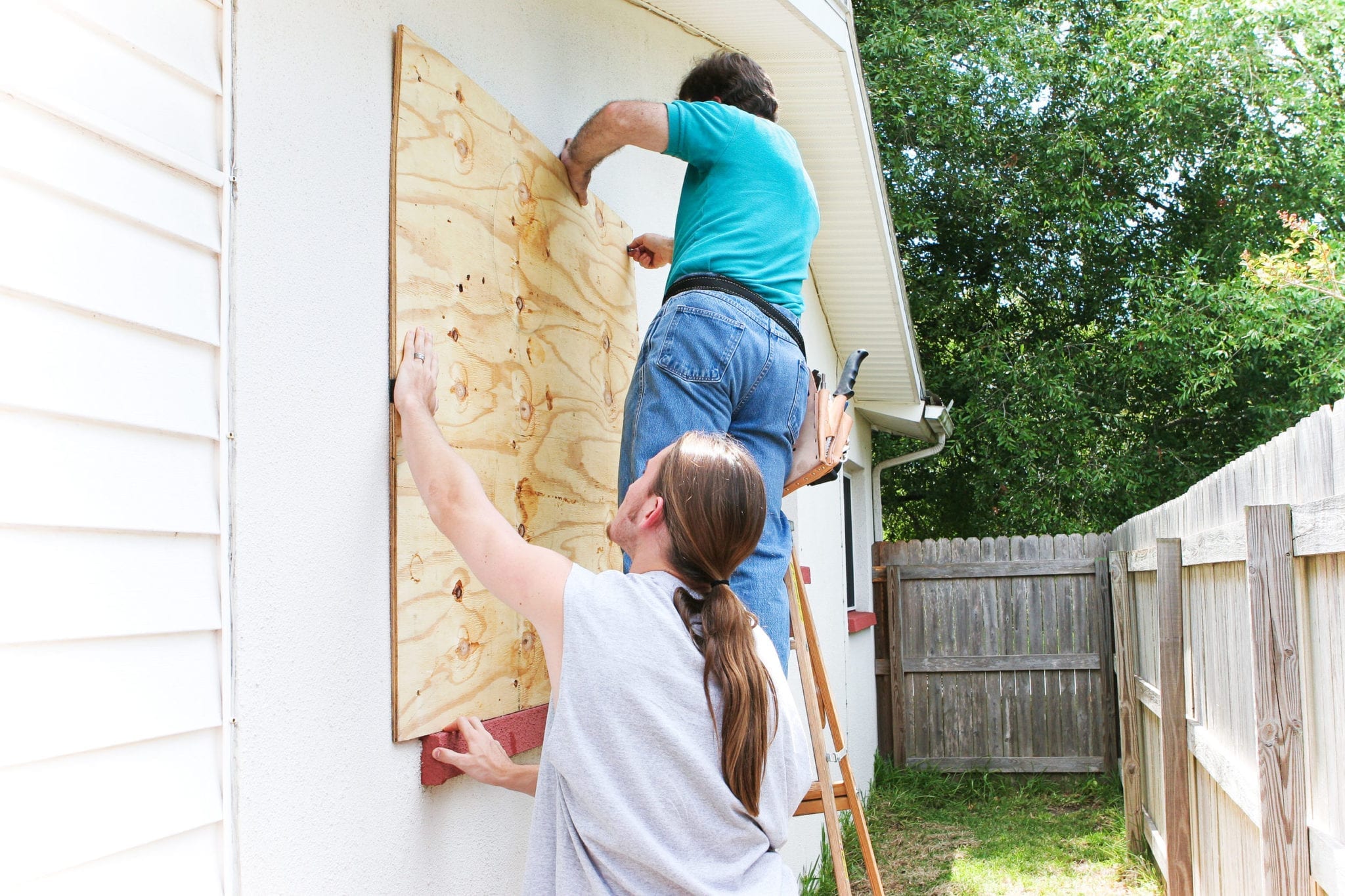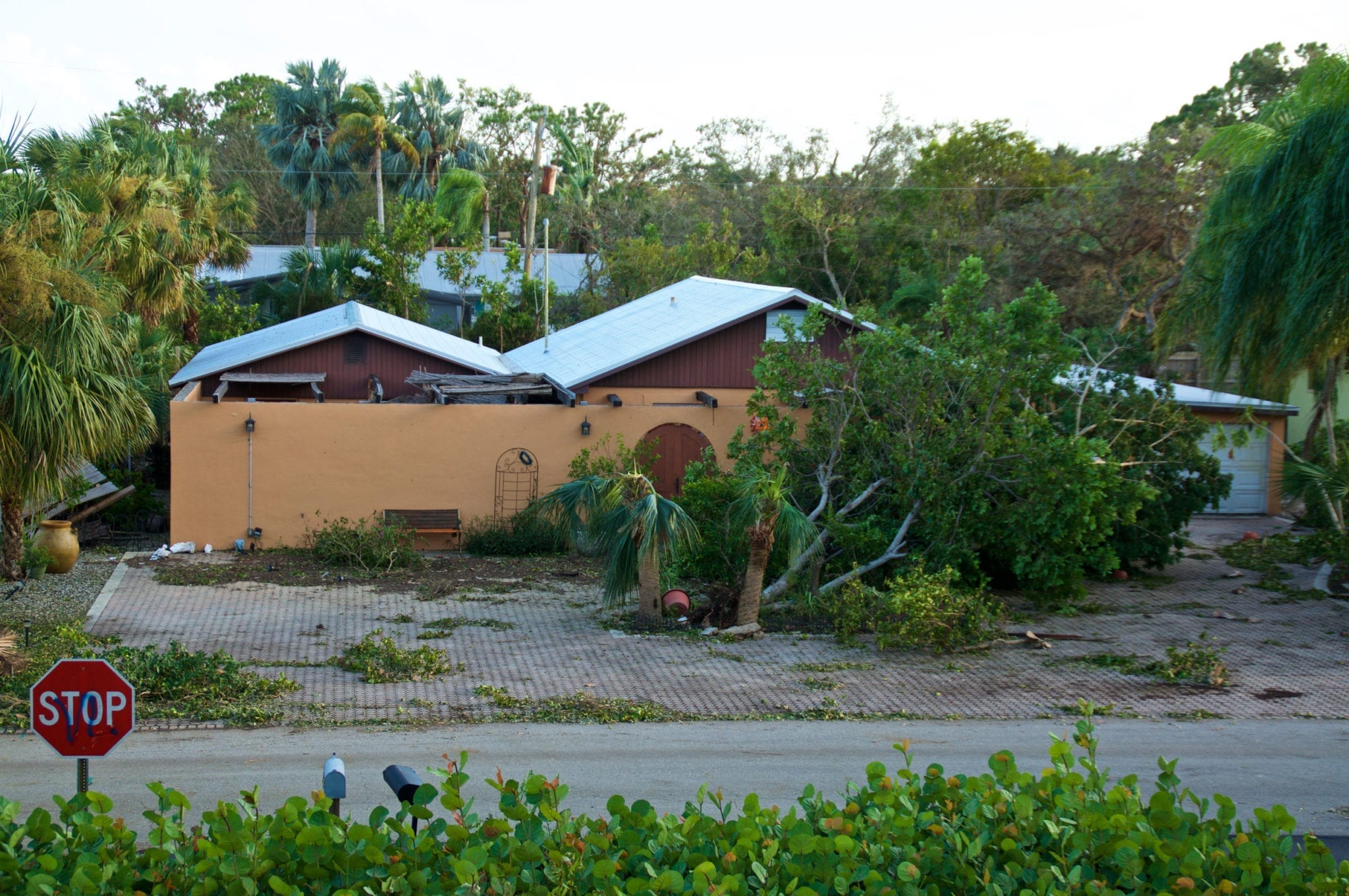While hurricane season begins in May, Floridians know that season’s peak is actually just about to arrive. Despite its drop in expected severity, the news of Hurricane Barry in New Orleans nevertheless has many coastal residents preparing for torrential rains.
Florida residents should take the time this month to ensure that they will be safe should they need to weather a big storm this year.
Be aware, once a hurricane hits, insurance companies, adjusters, and repair professionals will all be entangled in a web of hundreds — maybe thousands — of claims.
Your preparedness could reduce your risk of getting caught up in those emergency calls and keep your family safe through any storm.
Do You Have a Florida Hurricane Preparedness Kit?
A quick escape from a hurricane requires two things: a plan and supplies. We recommend creating your own hurricane preparedness kit. Here’s how…
First, Devise a Plan
Each county in Florida offers a downloadable disaster preparedness guide that will give you routes and suggestions for where to go after a hurricane. Look it up.
Locate a secure shelter nearby. Understand their rules and regulations. Devise a plan that will get you and your family there safely when it’s time. Write everything down.
Communicate this plan with your family – or at least tell them where to find the written version of it in case you’re not there when the time comes.
Then, Buy Supplies
Your home may be a safe shelter away from the coast, but if you are stranded in your home or your car during a storm, will you have enough supplies to keep you alive? For how long?
The Department of Homeland Security suggests that Florida residents should stock enough food to last three days minimum. Remember, this food should consist of non-perishable items that can be consumed even if the power is out.
Other items you should buy for a preparedness kit include:
- Large amounts of water
- Flashlights and batteries
- First aid kit with common over-the-counter medications
- Copies of important documents
- Protective clothing
- A spare tank of gas
- Road maps and jumper cables
If anyone in your immediate family has a medical condition requiring anything more than what you can find at your local drug store, be sure to contact your doctors and/or pharmacists well in advance.
How to Properly Secure Your Florida Property for a Hurricane
Don’t wait until it’s time to “batten down the hatches” to protect your property from damage. Take a close look at your property today to prevent further damage in tomorrow’s hurricane.
Here are some suggestions for things you can do right now, even if a hurricane is not forecasted anytime soon:
- Clean the drains and gutters around your home. Easy flow of water will prevent moisture from getting into your property.
- Shop around for hurricane shutters. Don’t wait until everyone is grabbing them off the shelves!
- Regularly maintain and trim trees and plants around the property. This maintenance will prevent severe wind damage.
- Declutter your garage and other safe storage spaces. Before a hurricane comes, you will need to put away lawn tools and anything that is outside and subject to blowing away.
These preparations will also ensure you can prove your attempts to mitigate potential damage to your property. This will be important should you wind up filing an insurance claim post-storm.
Your Florida Insurance May Cover These Measures
Hurricane measures aren’t always cheap. Some insurance companies offer compensation for “loss avoidance” costs. Reach out to your insurance provider for information on what costs will be covered as you prepare for hurricane season.
Know the ins and outs of your insurance before a disaster hits. Talk to a representative about what they will cover during and after a hurricane. Take this time to avoid costly surprises if you need to file a claim.
What To Do the Day of a Storm in Florida
Not all safety measures can be carried out in advance. When your local news channel says that a storm is a-coming, take care of these last-minute safety measures.
- Recheck your emergency kit. Make sure expiration dates are good and nothing has been removed from the kit.
- Cover all windows and close your shutters. Otherwise, heavy winds could send objects flying through any unprotected glass and into your home.
- Keep a radio close by. Your local news station will provide information on the direction of the storm and whether or not you need to evacuate.
Ways to Save Power
On a final note, electricity is an important resource during a hurricane. You will need it to communicate with emergency services, get updates on the storm, and know when to evacuate. On the day of the storm, it’s time to charge up and preserve power.
- Charge all devices and portable chargers.
- Know where your generator is located, and how to use it for back-up power.
- Set your freezer and refrigerator to the lowest settings. Only open them when necessary.
- Periodically check updates on your phone or TV, but don’t leave these devices on constantly.
Stay safe this hurricane season!
About the Author:
Andrew Winston is a partner at the personal injury law firm of Winston Law. For over 20 years, he has successfully represented countless people in all kinds of personal injury cases, with a particular focus on child injury, legal malpractice, and premises liability. He has been recognized for excellence in the representation of injured clients by admission to the Million Dollar Advocates Forum, is AV Preeminent Rated by the Martindale-Hubbell Law Directory, enjoys a 10.0 rating by AVVO as a Top Personal Injury Attorney, has been selected as a Florida “SuperLawyer” from 2011-2017 – an honor reserved for the top 5% of lawyers in the state – and was voted to Florida Trend’s ”Legal Elite” and as one of the Top 100 Lawyers in Florida and one of the Top 100 Lawyers in the Miami area for 2015, 2016, and 2017.
 In a Florida Car Crash? Watch Out for These Injuries
In a Florida Car Crash? Watch Out for These Injuries 


















